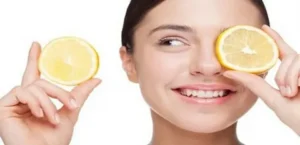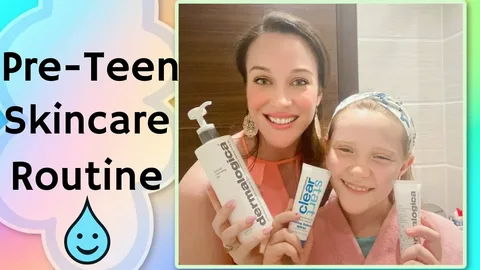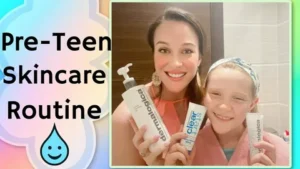Skincare for 9 Years Old: The Ultimate Guide to Gentle and Healthy Kids Skincare Routine
Discover the ultimate skincare guide for 9-year-olds! Learn safe kids skincare routines, gentle cleansers, moisturizers, and sunscreens with no harsh chemicals—perfect for building lifelong healthy habits.
Caring for your child’s skin may seem like a small task, but it has a big impact. At age nine, children are in the pre-teen stage—old enough to develop habits, but still young enough to need gentle, protective routines. That’s why a simple, safe, and consistent kids skincare routine is essential.
In this guide, we’ll break down everything parents need to know about skincare for 9-year-olds—from cleansers and moisturizers to sunscreen and lifestyle habits. Think of it as your go-to handbook for keeping your child’s skin healthy, happy, and glowing.
Why Skincare is Important for Children
Children’s skin is thinner, more sensitive, and more vulnerable to irritation than adults. Without the right care, common issues like dryness, sunburn, and rashes can become frequent visitors.
Here’s why building a gentle skincare routine for children matters:
-
Prevention of dryness and irritation – Kids often play outdoors, which exposes their skin to dust, wind, and pollution.
-
Sun protection – UV damage in childhood can increase long-term risks of skin conditions.
-
Confidence and hygiene habits – Learning self-care improves both skin health and self-esteem.
-
Foundation for teenage skincare – When puberty arrives, early habits make it easier to transition into acne-preventing routines.
In short, skincare isn’t vanity—it’s hygiene and health.
The Golden Rule: Keep It Simple
Unlike adults, kids don’t need a 7-step skincare routine. The simpler, the better. At age nine, a routine should focus on three things:
-
Cleansing (keeping skin clean without stripping natural oils).
-
Moisturizing (hydrating without clogging pores).
-
Protection (especially sunscreen to prevent sun damage).
Anything beyond this—like exfoliators, anti-aging products, or acne treatments—should be avoided unless prescribed by a dermatologist.
Choosing the Right Cleanser for Kids
The first step in a kids skincare routine is cleansing. But not all cleansers are created equal, especially for young skin.
What to Look For:
-
Soap-free formulas to prevent dryness.
-
Fragrance-free options to avoid irritation.
-
Mild foaming cleansers or creamy cleansers designed for sensitive skin.
Best Practices:
-
Wash the face twice daily—morning and evening.
-
Use lukewarm water (hot water strips natural oils).
-
Teach kids to wash for 20–30 seconds, rinsing thoroughly.
✅ Example: Brands like Cetaphil Gentle Skin Cleanser or CeraVe Hydrating Cleanser (always check child-safety suitability).
Moisturizing: Locking in Hydration
Moisturizers are like a protective blanket for children’s skin. Without them, skin can dry out, leading to cracks, itchiness, and discomfort.
Ingredients to Look For:
-
Ceramides (strengthen skin barrier).
-
Shea butter (natural hydration).
-
Aloe vera (soothes irritation).
How to Apply:
-
Use immediately after washing (when skin is slightly damp).
-
Apply a pea-sized amount to face and neck.
-
Choose fragrance-free, dye-free products.
For extra dry areas (like elbows or knees), thicker creams are better than lotions.
Why Sunscreen is a Must (Even for Kids)
Most parents assume sunscreen is only for beach days. But UV rays are present every single day, even indoors or during cloudy weather. For children, sunscreen is non-negotiable.
Best Sunscreens for Kids:
-
SPF 30+ broad-spectrum protection.
-
Mineral sunscreens (zinc oxide or titanium dioxide) are gentler than chemical ones.
-
Water-resistant formulas for kids who play outdoors or swim.
How to Use:
-
Apply 15 minutes before going outside.
-
Reapply every 2 hours, or after swimming/sweating.
-
Don’t forget ears, neck, and hands.
According to the American Academy of Dermatology (aad.org), childhood sunburns can double the risk of skin cancer later in life. That’s why protecting young skin now is a lifelong investment.
Products Kids Should Avoid at Age 9
Not every skincare product is safe for kids. In fact, many can cause more harm than good. Avoid:
-
Anti-aging products (retinol, peptides, collagen creams).
-
Exfoliating acids (AHA, BHA, glycolic, salicylic).
-
Acne treatments (benzoyl peroxide, strong medicated products).
-
Fragranced or glitter skincare (often irritating).
Children’s skin is naturally balanced—there’s no need to “fix” what isn’t broken.

Lifestyle Habits That Support Healthy Skin
Skincare doesn’t stop at creams and cleansers. Everyday habits shape how healthy your child’s skin looks and feels.
Key Lifestyle Tips:
-
Hydration: Encourage kids to drink enough water daily.
-
Nutrition: A balanced diet rich in fruits, vegetables, and healthy fats boosts skin glow.
-
Sleep: Children need 9–11 hours of sleep for skin repair.
-
Hygiene: Teach them not to touch their face often to avoid breakouts.
-
Clothing: Use cotton clothes to reduce irritation and wash with mild detergents.
Skincare for 9-Year-Old Boys vs. Girls
At this age, skincare needs are mostly the same for both kids . The only slight differences come from early hormonal shifts.
-
Boys: May start noticing oilier skin, especially in the T-zone (forehead, nose, chin).
-
Girls: May experience increased sensitivity or the earliest signs of acne.
But the foundation remains the same: cleanse, moisturize, protect.
Sample Skincare Routine for a 9-Year-Old
| Step | Morning Routine | Evening Routine |
|---|---|---|
| 1 | Gentle face wash | Gentle face wash |
| 2 | Moisturizer | Moisturizer |
| 3 | Sunscreen (SPF 30+) | — |
| 4 | Lip balm (unscented) | Lip balm (if needed) |
That’s it—3 steps in the morning, 2 steps at night. Quick, simple, and effective.
Safe DIY Skincare for Children
Some parents prefer natural remedies. A few safe DIY options include:
-
Oatmeal mask (soothing): Mix oatmeal with water for a gentle rinse.
-
Aloe vera gel (hydrating): Natural plant gel works well for dry spots.
-
Coconut oil (moisturizer): Use sparingly for dry patches.
⚠️ Always do a patch test before applying to the whole face.
Common Skincare Mistakes Parents Make
-
Using adult products on kids.
-
Thinking sunscreen is optional.
-
Over-cleansing or scrubbing too hard.
-
Ignoring irritation or small rashes.
-
Buying “cute” but harsh fragranced skincare marketed for kids.
Remember: skincare for children is about health, not beauty trends.
When to See a Dermatologist
Most kids won’t need medical skincare. But see a dermatologist if your child has:
-
Persistent rashes.
-
Severe dryness or eczema.
-
Early or severe acne.
-
Allergic reactions to products.
A pediatric dermatologist can recommend safe, tailored solutions.
How to Teach Kids Skincare Habits
Kids learn best when it’s fun. Here are ways to build good habits:
-
Turn routines into games – like singing a 30-second song while washing.
-
Let them choose products (kid-friendly and safe options).
-
Lead by example – kids copy what they see.
-
Reward consistency – positive reinforcement helps.
Long-Term Benefits of Starting Skincare Early
Teaching skincare at age 9 is like teaching table manners—it’s a habit that lasts. Benefits include:
-
Healthier skin through teenage years.
-
Fewer skin issues like eczema or breakouts.
-
Increased self-confidence.
-
A lifelong appreciation for self-care.
Conclusion
Skincare for 9-year-olds should be simple, safe, and consistent. A basic kids skincare routine—gentle cleanser, moisturizer, and sunscreen—is all your child needs. Avoid harsh products, encourage healthy habits, and make skincare fun. By doing this, you’re giving your child not just healthy skin, but the confidence and discipline to carry good habits into adulthood.
FAQs on Skincare for 9-Year-Olds
1. Can a 9-year-old use skincare products meant for teens?
No. Teen skincare often targets acne and oil control, which may be too harsh for younger kids. Stick to child-safe options.
2. Is sunscreen necessary if my child has darker skin?
Yes. While melanin offers some protection, all skin tones need sunscreen to prevent sun damage and long-term risks.
3. What should I do if my child develops acne at age 9?
Mild breakouts are possible. Start with gentle cleansing, and if acne persists, consult a dermatologist before trying medicated products.
4. Can my 9-year-old use sheet masks?
Most sheet masks are designed for adults and may contain fragrances or harsh chemicals. Safer alternatives include aloe vera gel or oatmeal rinses.
5. How do I know if a product is safe for my child?
Check labels for “fragrance-free,” “hypoallergenic,” and “dermatologist-tested.” Always do a patch test before full use.



